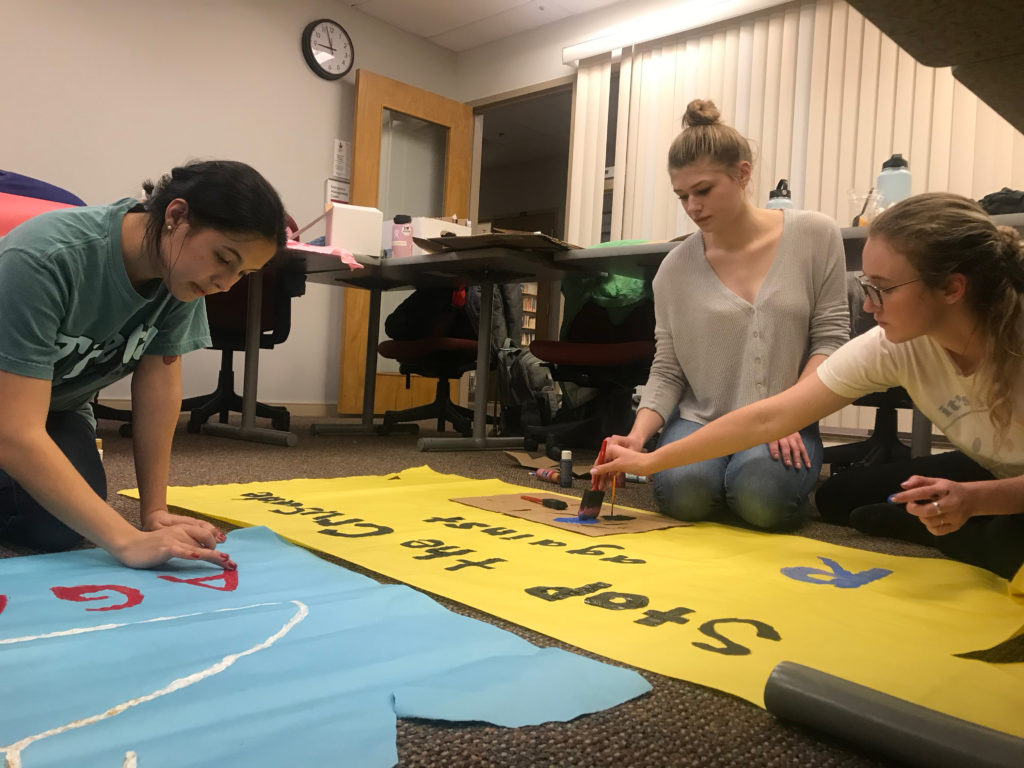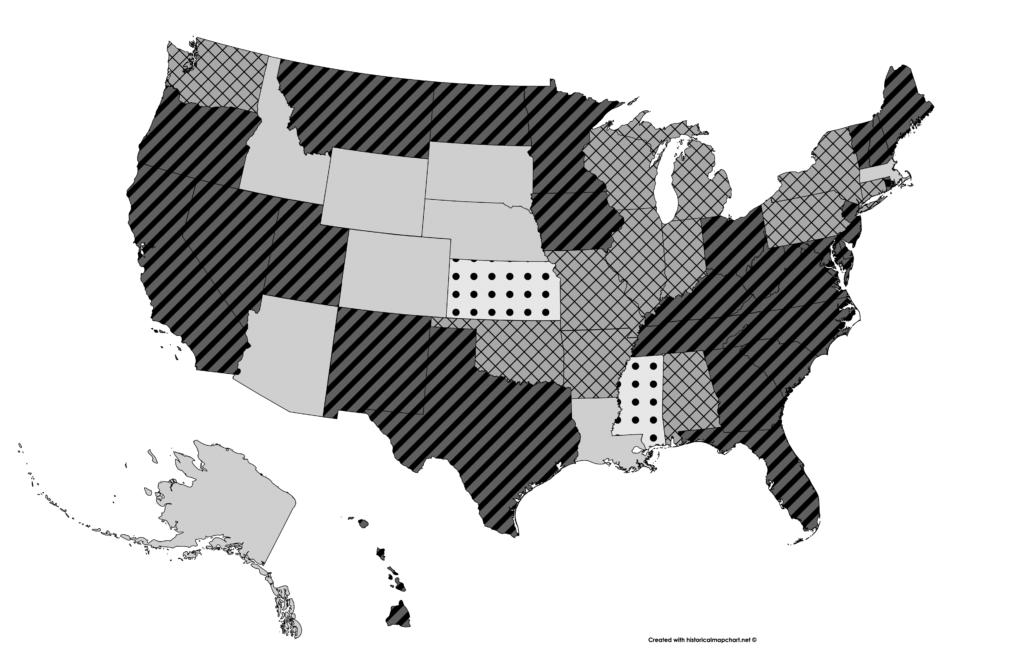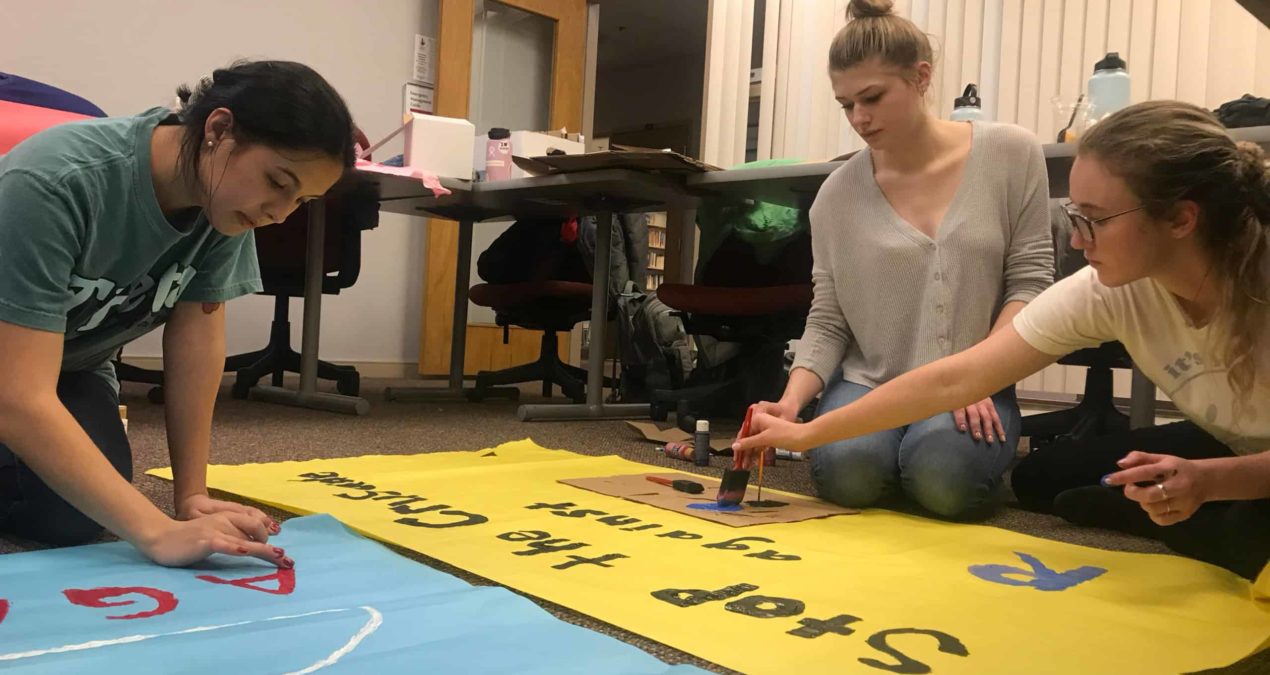
ALINA PANEK, Editor-in-Chief—Sky Calderón’s ‘21 first sex education involved jewelry and a signing of a card. She attended public high school in Ohio.
In Ohio, the Board of Education has no laws on sex education, only guidelines for what schools can follow for their health lessons. This leaves districts to their own agendas as they attempt to cover sex education in public Ohioan schools in kindergarten to eighth grade.
“Older students came up to the stage with purity rings,” Calderón said. “They had us sign virginity cards with a ‘sex not until marriage’ contract. If that’s all you’re given and you’re thrown into that, that’s just a recipe for a disaster. You’re ultimately learning by trial and error. We can eliminate some of the hurt and risky behavior that goes on through [peer sex] education.”
During the abstinence presentation ended and a student asked her older peers who were leading the discussion for a definition of “horny,” they refused to answer her question. Calderón uses this moment to fuel her passion for her latest project that she coordinates, the Denison peer sex education program. Zoya Gheisar ‘23, co-coordinator and Calderón had dozens of submissions for the peer educator position, and ultimately appointed 27 students.
The president of Denisonians for Planned Parenthood and founder of the peer sex education (PSE) program, Caroline Cary ‘20, said that the goal is more than just one session.

“The ultimate goal is some competency is required for understanding sexual respect and sexual health,” Cary said. “Promoting an informed and active citizen and discerning moral agent like our college’s mission. Students knowing how to communicate in a relationship is a really important skill.”
Cary also believes that peer sex education program is important because students talking to students is the most effective method to informing students about useful sex education. At Denison, we have a diverse student body with backgrounds from all over the globe. But sex education is not standardized even within the United States.
According to the Guttmacher Institute, 39 states and the District of Columbia mandate sex education and/or HIV education. (Twenty-seven states and DC mandate both sex education and HIV education. Two states mandate only sex education. Ten states only mandate HIV education.) When sex education is being taught, states have certain mandates that educators must follow. 30 states and DC mandate that, when provided, sex and HIV education programs meet certain general requirements. Seventeen states require program content to be medically accurate.
“Denison sends a lot of emails and posters, and it can be such an overload,” Cary said. “It can be easy to miss. I think we need to make students trip over them and tell them straight to their face. Sure, you can find all of this online but if it’s presented right in front of them, it’s a lot easier for them to absorb.”
The peer sex educators are collaborating with Denison’s Wellness Center, the title IX office and outside resources like Planned Parenthood in addition to the Kaleidoscope youth center. The PSE student coordinators approached Mark Moller, Dean of First-Year Students, and Director of Advising who agreed to be on board. The first approach for PSE was to be an August Orientation session, but the program is thinking bigger and starting on a smaller scale to refine the program through fall first-year advising circles.
Professors would invite the student educators to their advising circles. From there, the first-years would choose what they would like to learn. Cary and Calderón agreed that the professor would no longer be a part of the conversation as to ease the tensions and to truly foster an environment of peer to peer interaction and learning. Student educators would learn the curriculum from a professional Planned Parenthood sex educator who travel in greater Ohio high schools. In addition, DPP is planning to use YouTube videos from established sex education providers and also workshops with Planned Parenthood and Stephanie Jackson, the Title IX coordinator.
“A fully comprehensive sex education is hard to accomplish,” Calderón said. “Our best attempt will be with workshops and asking students what they’re interested in learning. At the end of the day, the educators will be super informed, so educators can be in any situation and have it be what the students want. We recognize that it’s impossible in an hour session to cover everything.”
Crystal Gutierrez ‘21, one of the appointed DPP peer sex educator from Lawrence, Massachusetts, said that the program will empower herself to learn more about sex education.
“I was tired of having the bulk of my sex education being taught from ‘Sex Education’ on Netflix and PSE will allow me to learn more, reflect on my own experiences and share that knowledge forward,” Guiterrez said.
Sky Calderón’s ‘21 first sex education involved jewelry and a signing of a card.
She attended public high school in Ohio.
In Ohio, the Ohio Board of Education has no laws, only guidelines for what schools can follow for their health lessons. This leaves districts to their own agendas as they attempt to cover sex education in public Ohioan schools in kindergarten to 8th grade.
“Older students came up to the stage with purity rings,” Calderón said. “They had us sign virginity cards with a ‘sex not until marriage’ contract. If that’s all you’re given and you’re thrown into that, that’s just a recipe for a disaster. You’re ultimately learning by trial and error. We can eliminate some of the hurt and risky behavior that goes on through [peer sex] education.”
During the abstinence presentation ended and a student asked her older peers who were leading the discussion for a definition of “horny,” they refused to answer her question. Calderón uses this moment to fuel her passion for her latest project that she coordinates, the Denison peer sex education program. Zoya Gheisar ‘23, co-coordinator and Calderón had dozens of submissions for the peer educator position, and ultimately appointed 27 students.
The president of Denisonian for Planned Parenthood and founder of the peer sex education (PSE) program, Caroline Cary ‘20, said that the goal is more than just one session.
“The ultimate goal is some competency is required for understanding sexual respect and sexual health,” Cary said. “Promoting an informed and active citizen and discerning moral agent like our college’s mission. Students knowing how to communicate in a relationship is a really important skill.”
Cary also believes that peer sex education program is important because students talking to students is the most effective method to informing students about useful sex education. At Denison, we have a diverse student body with backgrounds from all over the globe. But sex education is not standardized even within the United States.
According to the Guttmacher Institute, 39 states and the District of Columbia mandate sex education and/or HIV education. (Twenty-seven states and DC mandate both sex education and HIV education. Two states mandate only sex education. Ten states only mandate HIV education.) When sex education is being taught, states have certain mandates that educators must follow. 30 states and DC mandate that, when provided, sex and HIV education programs meet certain general requirements. Seventeen states require program content to be medically accurate.
“Denison sends a lot of emails and posters, and it can be such an overload,” Cary said. “It can be easy to miss. I think we need to make students trip over them and tell them straight to their face. Sure, you can find all of this online but if it’s presented right in front of them, it’s a lot easier for them to absorb.”
The peer sex educators are collaborating with Denison’s Wellness Center, the title IX office and outside resources like Planned Parenthood in addition to the Kaleidoscope youth center. The PSE student coordinators approached Mark Moller, Dean of First-Year Students, and Director of Advising who agreed to be on board. The first approach for PSE was to be an August Orientation session, but the program is thinking bigger and starting on a smaller scale to refine the program through fall first-year advising circles.
Professors would invite the student educators to their advising circles. From there, the first-years would choose what they would like to learn. Cary and Calderón agreed that the professor would no longer be a part of the conversation as to ease the tensions and to truly foster an environment of peer to peer interaction and learning. Student educators would learn the curriculum from a professional Planned Parenthood sex educator who travel in greater Ohio high schools. In addition, DPP is planning to use YouTube videos from established sex education providers and also workshops with Planned Parenthood and Stephanie Jackson, the Title IX coordinator.
“A fully comprehensive sex education is hard to accomplish,” Calderón said. “Our best attempt will be with workshops and asking students what they’re interested in learning. At the end of the day, the educators will be super informed, so educators can be in any situation and have it be what the students want. We recognize that it’s impossible in an hour session to cover everything.”
Crystal Gutierrez ‘21, one of the appointed DPP peer sex educator from Lawrence, Massachusetts, said that the program will empower herself to learn more about sex education.
“I was tired of having the bulk of my sex education being taught from ‘Sex Education’ on Netflix and PSE will allow me to learn more, reflect on my own experiences and share that knowledge forward,” Gutierrez said.


Joneen Mackenzie, RN Certified Prevention Specialist
Comment
How about teaching issues of the heart, relationship development skills, and teaching ways to live connected. Dis-connection and being in unhealthy relationships is deleterious to ones’ health and well-being. The Center for Relationship Education teaches research aligned skills regarding what makes relationships work and what makes them fail. This would go a long way to reduce controversy and ensure that young people have what they need to stay healthy and succeed.